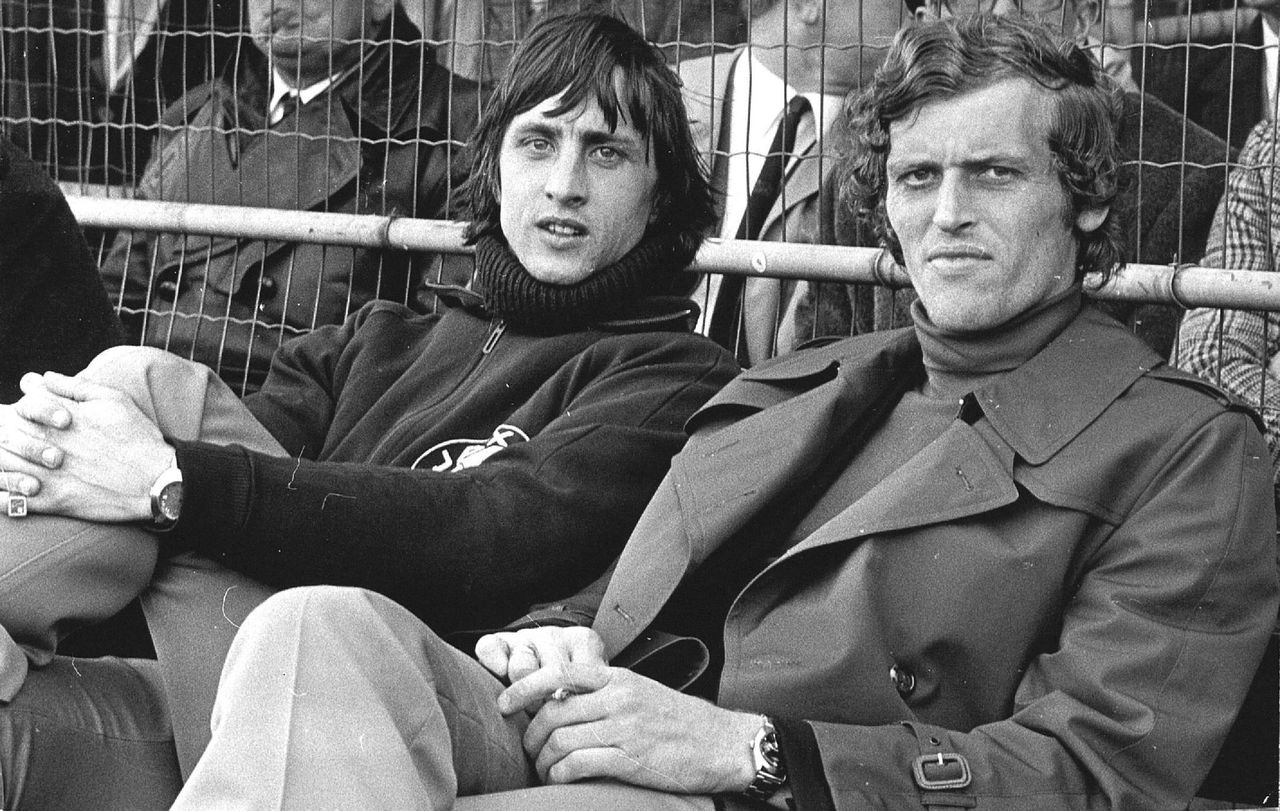During the recent international break (otherwise known as “why isn’t there any decent football on telly?”) my mind wandered back 40 years, to a time when the fortunes of two national sides was vastly different to what they are now. England currently stand top of their World Cup qualifying group and look dead certs for a place in Russia next year, whereas Holland look increasingly destined to miss out and have indeed just dumped their coach, the hapless Danny Blind.
In February 1977, Holland had been World Cup finalists three years earlier (and would be again the following year) and European Championships semi-finalists the previous summer. England on the other hand, had last played at the final stages of an international tournament in 1970 – unluckily going out to a Jurgen Grabowski-inspired West Germany in the quarter finals – and were not to feature again until Euro ’80, where their happy-go-lucky (sic) fans got themselves tear-gassed by riot police and the team were knocked out at the group stage. This was a time when Alf Ramsey’s wingless style became hopelessly outdated, eventually leading to his dismissal. He was succeeded by the infamous Don Revie. While Europe was dancing to a new beat, led by inspirational coaches at both club and international level, England (with the exception of, and this hurts to admit, Liverpool) were dragging their grandmother round the ballroom at a 70th birthday party.
Arie Haan – “He cannot shoot from there!”
There wasn’t a great deal of live televised football in those days and we avidly watched any old nonsense that the two English channels deemed fit for viewing (FA Cup Finals, England v Scotland, Celtic v Atletico Madrid, three of the Spanish side sent off!) but some other internationals were given the live treatment. 9th February, 1977, one such game was featured – a friendly at Wembley between England and Holland.
The era of Dutch domination in Europe at club level was over, largely thanks to the break-up of the all-conquering Ajax side, but the national coach could still call on a vast array of talent which, even on paper, looked vastly superior to anything the English could choose. Still, Wembley, either mythically or genuinely was seen (certainly in the English media) as something of a fortress and any victory by an away side at the “home of football” was highly prized.
A glance at the teams and England’s defensive frailties were immediately apparent – Centre backs Mike Doyle and Dave Watson (both Manchester City) were both old fashioned stoppers in the English manner. In midfield, Paul Madeley of Leeds and Brian Greenhoff (Manchester United) were bits-and-pieces players, used by their clubs in a variety of positions. True, there was quality in the selection. Kevin Keegan and Trevor Brooking were both excellent, experienced internationals and Stan Bowles was arguably one of the most gifted of his generation, but all these game lads were operating in a league that still prioritised lung busting midfielders with “character”. (Sound familiar?)
The Dutch, on the other hand…
Piet Keizer – “Cruyff is the best, but Keizer the better one”
As previously indicated, many of the Ajax players were now earning a living overseas but there was still a core who were either current or former Ajacieden. Goalkeeper Piet Schrijvers, Ruud Krol and Wim Suurbier all gave the defence the solid reassurance of playing regularly together. When you add in Johan Cruyff, Johan Neeskens and Johnny Rep to the equation, it’s a great side whichever way you slice it. The real star of the game though was not one of these household names. No, that accolade belonged to the little-known (outside Holland at least) Jan Peters, at that time playing for NEC from Nijmegen. Whilst this wasn’t his debut for the national side he had barely featured until then and was seen as a surprise selection for such a prestigious fixture. Jan Zwartkruis, the Dutch coach at the time, was considering his options and tactics for the game and thought that the guile and craft of Peters may come in handy against an England side who would seek to stifle the Dutch as any attempt to go toe-to-toe would prove disastrous. In the event, the match was ludicrously one-sided, English players who took part have gone on record as saying how hard it was to combat the total football of a team who were at something of a peak. Trevor Brooking recalls long periods where England simply could not get the ball. Kevin Beattie, an extremely capable full back in an excellent Ipswich Town side was marking flying winger Rob Rensenbrink and said he was “tired out” trying to keep pace with him.
Kevin Keegan remembered this game in his autobiography. Keegan was very quick from a standing start but recalled one occasion when Cruyff picked up the ball on the edge of his own penalty area, with the Liverpool player in hot pursuit. By the time they reached the half way line, Cruyff had ten metres on his hapless opponent, prompting Keegan to say “no wonder they call him the Flying Dutchman”. At one stage, during a break in play, Johnny Rep, rather wonderfully summing up English international football at the time, said to Keegan “you have got some problems here, haven’t you?”
Johnny always had a way with words…
Jan Peters scored two goals in a first half in front of over 90,000 spectators (including a healthy contingent of Dutch fans, some of who were allowed in despite their tickets being stuck on a plane), thoroughly vindicating his coach’s foresight in selecting him. In truth, it could have been so many more – England were lucky to get nil. Those of us who saw the game either in person or on television were just plain lucky.

